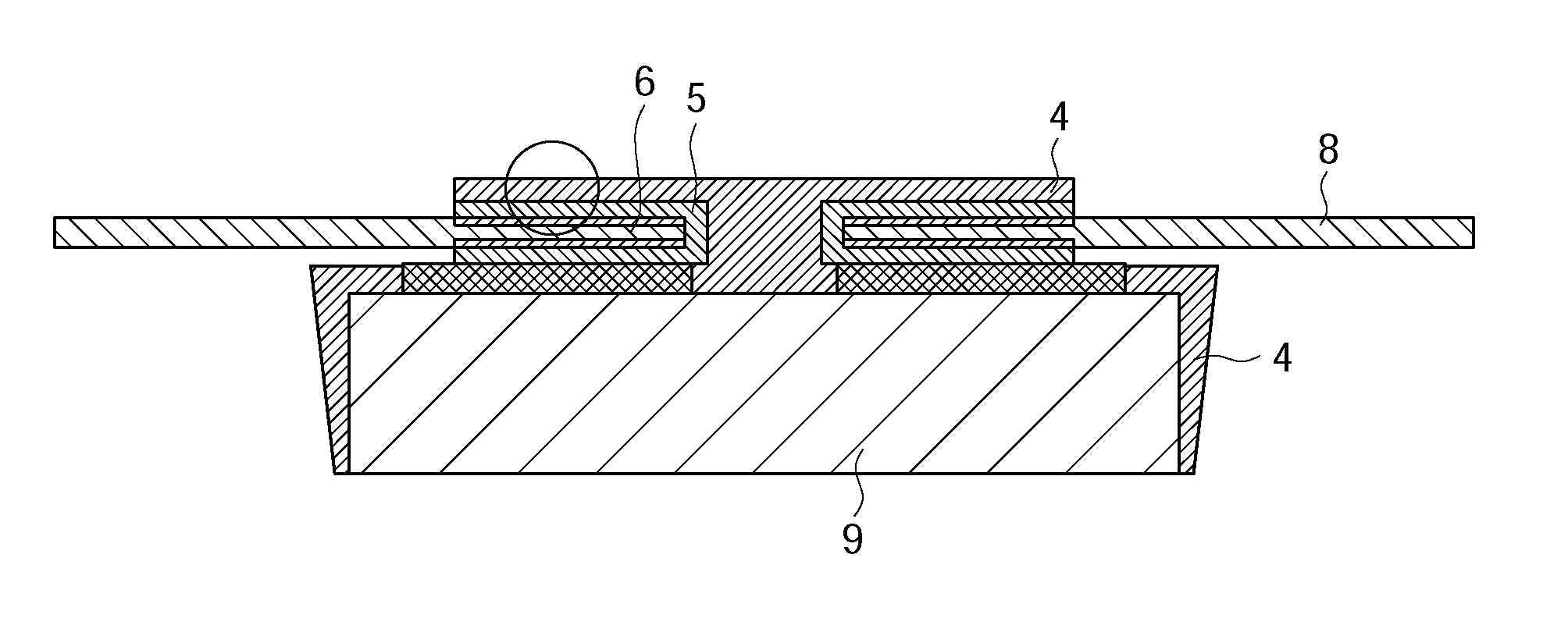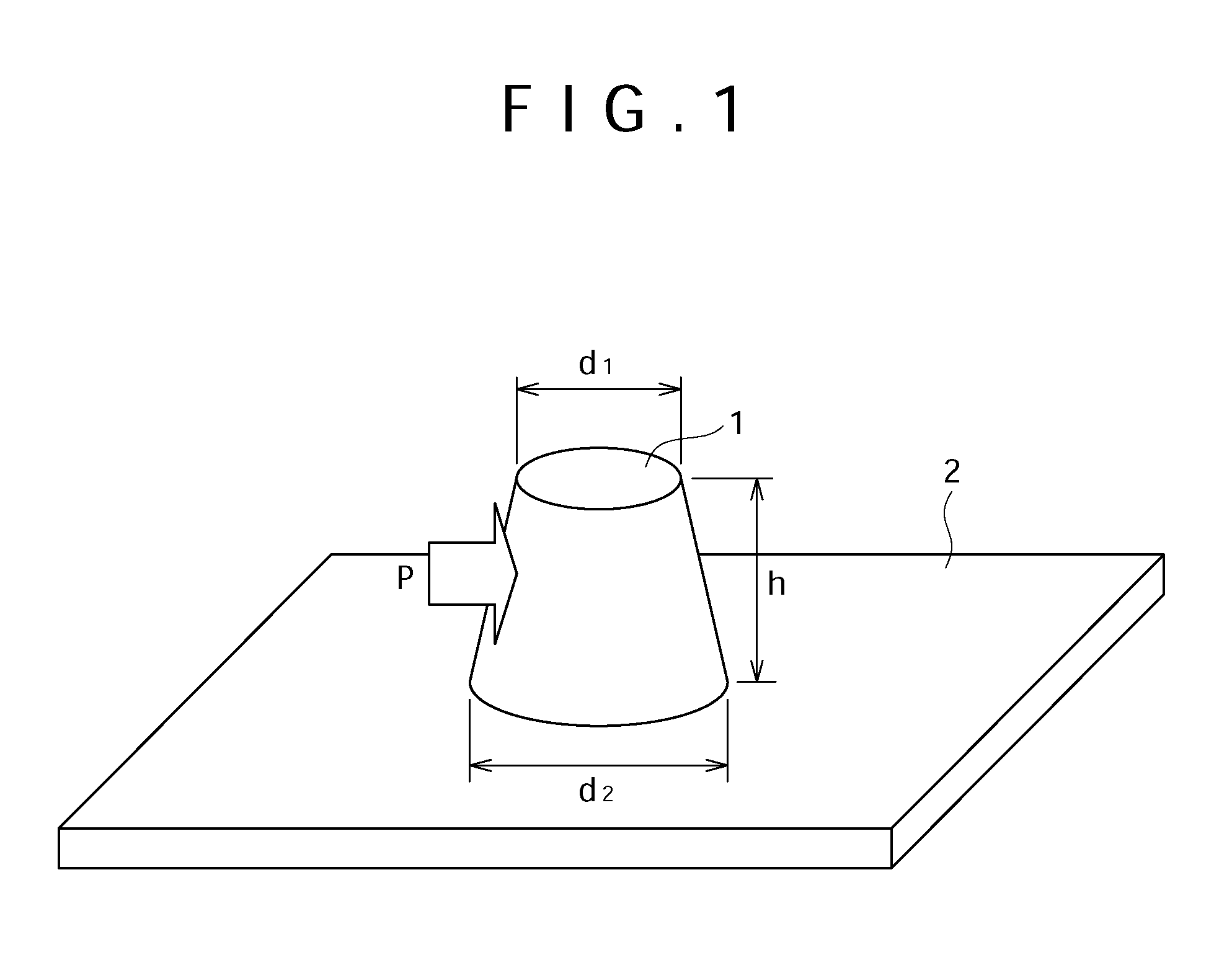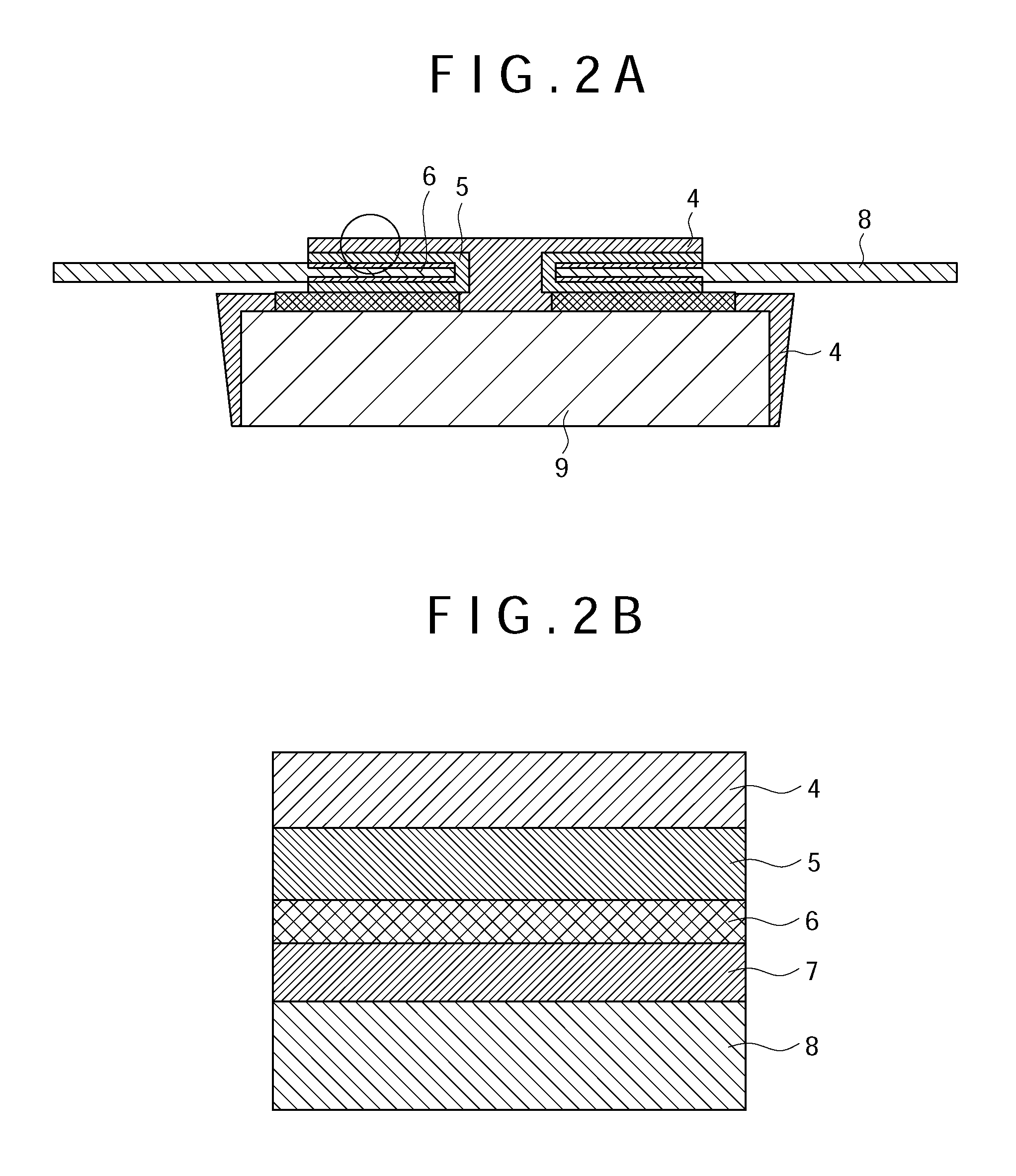Method for jointing metal member and resin and jointed body thereof
a metal member and resin technology, applied in the direction of superimposed coating process, coating, conductor, etc., can solve the problems of insufficient adhesiveness to the resin, corrosion resistance, heat resistance, solvent resistance, especially corrosion resistance, etc., and achieve the effect of improving the adhesiveness between the metal member and the resin
- Summary
- Abstract
- Description
- Claims
- Application Information
AI Technical Summary
Benefits of technology
Problems solved by technology
Method used
Image
Examples
examples 1 to 11
[0083]Examples 1 to 6 are the cases where the method of [1]-(1) in which the silane coupling agent and the oxidizing agent coexist was applied to metal members to which a copper substrate was plated with Ni. Investigated results of adhesiveness to the resin are shown in Table 2. A concentration of the silane coupling was 1.0% by weight, and ethanol was used as a solvent. A concentration of aqueous hydrogen peroxide solution used as the oxidizing agent was set to 10% by using 30% aqueous hydrogen peroxide solution. Every sample was treated with heat at 100° C. for 1 hour after immersing into the silane coupling agent solution. The oxidizing agent used was hydrogen peroxide. Various silane coupling agents were used to perform the one-step treatment. Adhesiveness strengths to the resin are determined as good in every case. As can be seen from comparison between Comparative example 3 and Example 4, the adhesiveness forces were dramatically improved.
[0084]Examples 7 to 11 are the cases w...
examples 12 to 19
[0086]Investigated result with regard to the method of [1]-(2) in which the metal members are immersed into the silane coupling agent solution after applying oxidation treatment are shown in Table 3. Basically, metal members in which Cu or Ni alloy is used as a substrate and Ni plating or Ni—Sn plating are applied thereto are used. Every sample was treated with heat at 100° C. for 1 hour after immersing into the silane coupling agent solution. A concentration of the silane coupling agent was 1.0% by weight, and ethanol was used as a solvent. Examples 12 to 14 are the cases where the metal member is immersed into the aqueous hydrogen peroxide solution for oxidation treatment being the first-step treatment in the two-step treatment and then immersed into the silane coupling agent solution as the second-step treatment.
[0087]A 10% concentration the aqueous hydrogen peroxide solution was prepared from 30% aqueous hydrogen peroxide solution, and ethanol was used as a solvent. In every Exa...
examples 20 to 26
[0090]Investigated result with regard to the method of [2]-(2) in which the metal members were immersing into the silane coupling agent solution after applying chelating agent treatment are shown in Table 3. Basically, metal members in which Cu was used and Ni plating was applied thereto were used. Every sample was treated with heat at 100° C. for 1 hour after immersing into the silane coupling agent solution. A concentration of the silane coupling was 1.0% by weight, and ethanol was used as a solvent.
[0091]Examples 20 to 24 are the cases where EDTA-2Na was used as the chelating agent in the first step and various silane coupling agent were used. The reason why 2Na salt was used is to increase solubility of the chelating agent to water. A concentration of the chelating agent solution was 2%, and water was used as a solvent. In every Example, high adhesiveness strengths to the resin were obtained. Example 25 is the case where the chelating agent and the oxidizing agent (hydrogen pero...
PUM
| Property | Measurement | Unit |
|---|---|---|
| pH | aaaaa | aaaaa |
| pH | aaaaa | aaaaa |
| temperature | aaaaa | aaaaa |
Abstract
Description
Claims
Application Information
 Login to View More
Login to View More - R&D
- Intellectual Property
- Life Sciences
- Materials
- Tech Scout
- Unparalleled Data Quality
- Higher Quality Content
- 60% Fewer Hallucinations
Browse by: Latest US Patents, China's latest patents, Technical Efficacy Thesaurus, Application Domain, Technology Topic, Popular Technical Reports.
© 2025 PatSnap. All rights reserved.Legal|Privacy policy|Modern Slavery Act Transparency Statement|Sitemap|About US| Contact US: help@patsnap.com



